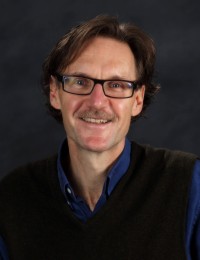In the conversation following, Pound’s daughter, Mary de
Rachewiltz, is graciously giving us a glimpse into her
father’s complicated politics, as well as into his role as a
father, teacher, poet, and much more. An accomplished poet
in her own right, with several volumes of poetry, in both
Italian and English, and numerous translations to her name,
she also authored the memoir Discretions—Ezra Pound,
Father and Teacher (1971), in which she reflects on the
complexities of Pound the person, her own experience as a
witness to the twentieth century, and the complexities of
Pound’s relationship with the historical moments he
traversed, and indeed, helped shape. The tenor of Mary’s
observations, articulated in at times nuanced insights, is
clear: if my father may have misconstrued, and been
misguided by, some of the darker implications of Il Duce, so
has the critical community misconstrued, or misunderstood,
his intentions. A deep and careful reading of The Cantos
(which runs like a fugal counterpoint through many
passages of Discretions), she suggests, reveals the
true man behind his work. (from the Introduction)
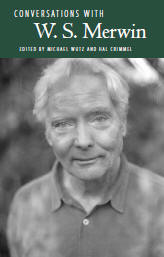 |
Conversations
with W. S. Merwin, coedited with Hal
Crimmel (Weber State University), Jackson:
University Press of Mississippi, 2015; reissued in
paperback 2018.
At age 88, William Stanley Merwin is among the
most distinguished poets, translators, and thinkers
in the United States. A major link between the
period of literary modernism and its contemporary
extensions, Merwin has been a major voice in
American letters for close to seven decades, and his
translations from the Spanish, French, Italian,
Japanese, and others, have earned him unanimous
praise and admiration. Merwin has also been on
the forefront of the environmental movement and
articulated concerns about ecology and
sustainability long before they became fashionable.
Now, for the first time,
Conversations with W. S. Merwin offers insight
into the various dimensions of Merwin's thought by
treating his interviews as a self-standing category
in his oeuvre. More than casual narratives of
contiguity interpreting, en passant, the occasional
poem or relaying an occasional experience, they
afford literary and cultural historians a view into
the larger through-lines of Merwin's thinking. Like
many poets aware of literary tradition and cultural
ferment, Merwin sees his work in conversation with
the larger developments of his time(s) and with the
writers that have preceded and parallel him. In the
aggregate, these interviews allow for a
reconstruction of his literary and cultural
roots--stations in the making of a writer and
thinker, activist and ecologist, and indeed
poète-philosophe. Conversations with W.S.
Merwin will be an indispensable resource for readers
and scholars for decades to come.
|
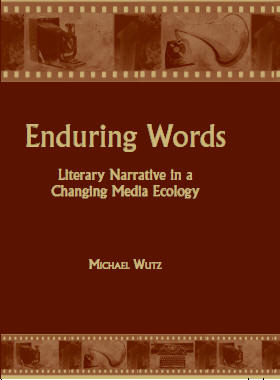 |
Enduring Words—Literary
Narrative in Changing Media Ecology, Tuscaloosa: University of
Alabama Press, 2009, pp. 279.
This study investigates the intersection of technological models in
literary texts of the 20th century, particularly the way such
models have shaped the constructions of literary form and cognition in a cadre of
prominent male novelists: Frank Norris, Malcolm Lowry, E. L. Doctorow, and
Richard Powers. It describes in historically specific ways the
narrative response of these writers to a changing media ecology, in particular,
the novel's reaction to the advent of photography, the typewriter, phonography,
film, and digital media throughout the 20th century. Unlike written narrative,
these new technologies of auditory and visual inscription register their
environment directly, without the detour of letters, and they unlink human
bodies from their corporeal functions and productions, such as sight, voice,
and writing. Faced with the cultural pressure of competing media, I argue,
modern and contemporary narrative has been developing strategies to secure its
continued viability in a post-print age, often by emphasizing the resilience
and multiply-nuanced suppleness of language (and often in opposition to the
flat or monoglossic representations of a politically coopted media apparatus).
Secondarily, as more contemporary writers, Doctorow and Powers also engage the
question as to how new technologies of communication and information retrieval
are affecting the very idea of cognition, the human capacity for thinking that
has given rise to these technologies in the first place.
This book was fortunate to receive the 2010 Susanne K. Langer Award for
Outstanding Scholarship in the Ecology of Symbolic Form awarded by the
Media Ecology Association;
it has also been nominated for the 2010 Robert Motherwell Book Award awarded annually by the
Daedalus Foundation.
The book has been reviewed in Counterpoise, CBQ,
Choice,
Review of English Studies, Electronic Book Review,
American Literary History (23, 2: 362-379),
Modern Fiction Studies,
Symplokee (18, 1-2: 402-404)..
Studies in the Novel, and other journals.
|
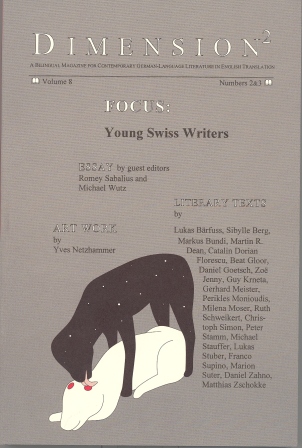
|
"Young Swiss Writers," a special double issue of the
international, bilingual magazine Dimension2 co-edited and -introduced with Romey Sabalius (Cal State, San José), vol. 8 (2/3), pp. 177-455, February
2007.
This issue introduces current fiction from the
German-speaking part of Switzerland to a predominantly American
readership and shows how the literature reflects Switzerland's
changing self-definition in a post-Cold War Europe and indeed the world.
The collection focuses on work done in the last five to seven years,
while the introduction locates current Swiss fiction with a view toward
a larger, more integrated Europe.
Contributors
include: Matthias Zschokke, Martin R. Dean,, Lukas Bärfuss, Catalin Dorian Florescu, Perikles Monioudis,
Zoë Jenny, Milena Moser, Peter Stamm, Daniel Zahno, and
many others.This
project is generously funded by the Swiss cultural institutes,
ProHelvetia, Präsenz Schweiz and Migros.
|
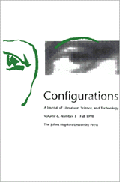
Look inside |
"Media, Materiality, Memory: Aspects of Intermediality," a special issue
of Configurations, the journal of the Society for Literature &
Science, Johns Hopkins Univ. Press, vol. 10, no.1 (Winter 2002): pp. 201, coedited with
Geoffrey Winthrop-Young, Univ. of British Columbia.
This issue consists of original essays specifically written and edited for this issue and moves beyond
individual media-focused literary case studies to theorize on recent
developments in the field of media theory. Contributors include: Friedrich
Kittler, Humboldt Universität Berlin; Michael Giesecke, Univ. of Erfurt;
Ursula Heise, Columbia University; Mark Hansen, Princeton University; Bruce
Clarke, Texas Tech University; Wolf Kittler, UC–Santa Barbara, and others.
|

Look outside & inside |
Translation, from the German
into English, of Friedrich Kittler's Gramophone, Film, Typewriter,
including a critical introduction, together with Geoffrey Winthrop-Young,
Stanford Univ. Press, 1999, pp. 315.
Recent literary-theoretical scholarship framed by "media
discourse analysis" attempts to theorize about print in a world of
post-print media. If writing had, for millennia, been humankind's primary
storage technology, photography and, later in the 19th century, phono-graphy and film jeopardized this privilege and
ultimately destroyed the alphabetic storage and transmission monopoly of
writing. How does print culture respond to the encroachments of other media,
such as photography, telegraphy, film (and the computer) on its territory of
representation? This is the theoretical context of
Gramophone, Film, Typewriter, the modernist
addendum to Kittler's magum opus,
Discourse Networks (Stanford UP, 1990).
|
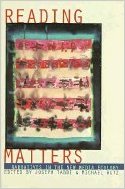
Look outside & inside |
Reading Matters: Narrative in
the New Media Ecology, coedited with Joseph Tabbi (Univ. of Illinois,
Chicago), Cornell Univ. Press, 1997, pp. 316.
This collection of original
essays focuses on the convergence of
technology, media, and twentieth-century narrative. The collection delineates
the field, determines what its often abstract and theoretical concerns can
contribute to the practical study of narrative, and makes current developments
in science, technology, media theory, and literature more widely available to
interested readers. It also establishes a developmental history of
hypertext by focusing on the formal, experimental features of modernist
narrative that prepare the ground for electronic textuality.
This book
was nominated for the 1998 Barbara Perkins Prize from the Society for the
Study of Narrative Literature. |
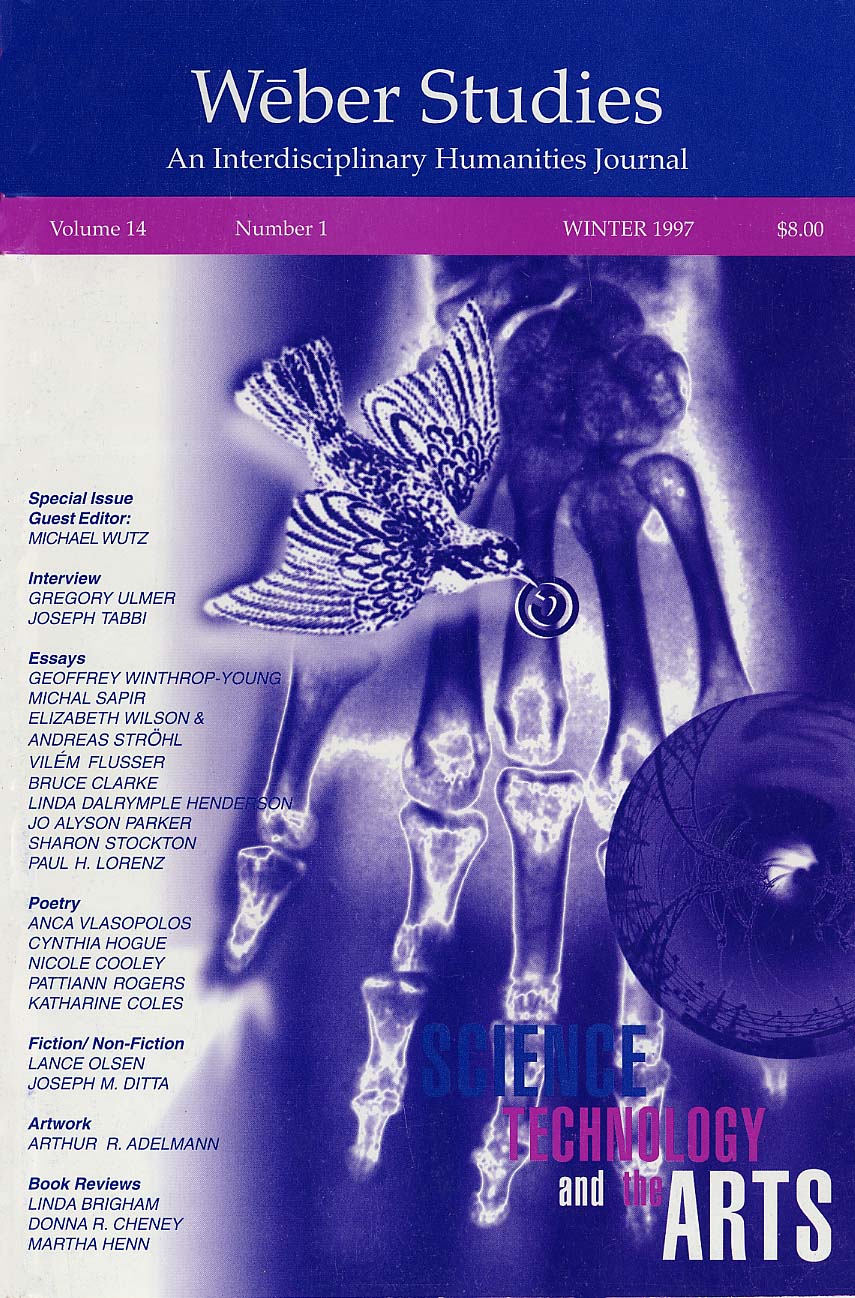
Look
outside & inside |
Guest editor of Weber
Studies special issue on Science, Technology & the Arts, January 1997,
pp. 160.
This issue delineates the current range of interests in the fields of
science, technology, literature, and the arts. What underlies the work
gathered in it is a
disciplinary fluidity grounded, fundamentally, in an elementary reciprocity:
just as science is always already a rhetoric of science, fiction and narrative (and the visual arts) are inevitably informed by
the tropes and models of science and technology. Contributors include:
Gregory Ulmer & Joseph Tabbi; Geoffrey Winthrop-Young; Elizabeth Wilson &
Andreas Ströhl; Vilém Flusser; Bruce
Clarke; Linda Dalrymple-Henderson; Jo Alyson Parker; Cynthia
Hogue; Nicole Cooley; Lance Olsen, and any more.
This issue also appeared simultaneously as a special on-line
supplement to the
Electronic Book Review,
vol. 4.
|
-
"Gogol +
Nikhil = Nikon? -- Power, Place, and Photography in
Jhumpa Lahiri’s
The Namesake,"
The Place of
Photography, Ed. Julia Faisst and Kerstin
Schmidt, Leiden: Brill (forthcoming 2018;
10,700 words ).
This essay
offers a media-technological reading of photography
in Lahiri’s work, centering broadly on The
Namesake (2003). (1) Through the lens of
photography, Lahiri re-exposes the power
differential between men and women. If trigger-happy
males zoom in on female bodies, or any other
subject, from behind the view finder, they not only
assert their traditional agency through a technology
of representation; they also reduce women to passive
statu(e)s and the object of the male gaze, thus
re-inscribing an age-old power dichotomy and
bringing it up to date. Similarly, as Lahiri’s
Indian immigrants record, with camera in hand, their
newfound life in the West, they also return to their
country of origin as tourists, where snapshots of
oddly-estranged environments give them a sense of
(nostalgic) cultural grounding. (2) While ancestral
portraits have served numerous cultures as a
placeholder for the deceased, the Hindu practice of
burning the body, and the subsequent dispersal of
the ash, invests photographic verisimilitude with
greater significance than in the West. Yet, if
photography can be commemorative in a visual sense,
words occupy a different value on the spectrum of
recall and representation, often filling the gap
where images and photographs fail.
-
"Articulate Flesh – D. H. Lawrence and The Modern
Media Ecology,"
Hybrid Multimedia Literature and Art in post-Cold War Europe,
Ed. Marcel-Cornis Pope, Virginia Comonwealth
University. Amsterdam: John Benjamins Press, 2014,
91-103.
This essay maps Lawrence's relationship to modern media and suggests that he saw in new(-fangled)
technologies of communication another threat to the growing
disembodiment he had been lamenting since his early days as a writer.
Much in keeping with his concern about human self-estrangement—and
notwithstanding their promise of greater authenticity, immediacy, and
communicability—Lawrence understood the technologies of visual and
acoustic storage as instruments of distancing and alienation, not
togetherness and approximation. In the second part of the argument, I
offer a media-oriented reading of
Lady Chatterley's Lover and
suggest that the canonical view of Lawrence as a conservative
reactionary ought to be complicated.
- "Federman's Body Literature or, The Unbearable Lightness
of Being," Federman's Fictions, Ed.
Geoffrey Di Leo. Albany, NY: SUNY-Press, 2010: 257-275.
This essay suggests that Federman's extraordinary display of linguistic skill
has tended to obscure what Federman himself has always fully acknowledged:
namely, that the body ought to be seen as the elemental ground of being
enabling the experience of living, and along with it the experience of
writing. Behind the verbal and cerebral pyrotechnics of Federman's
postmodernist surfiction, I argue, lies the body as the primary and primordial
horizon of experiential value. Seeing the way Federman reflects on his
corps allow us to understand that, for him, life, and with it, art, begins
with the physical, not verbal, awareness of the self.
- "Writing From Between the Gaps: Agape
Agape and Twentieth-Century Media Culture," Paper Empire: William Gaddis and the World System, Ed. Joseph Tabbi and Rone
Shavers. Tuscaloosa: The Univ. of Alabama Press, 2007: 185-210.
This essay argues
that Gaddis' posthumously published novel Agape Agapecan be seen as a
reprise of the themes orchestrating his oeuvre, such as entropy,
plagiarism, the pressures of capitalism, the threat of mass culture to
artistic authenticity, and the continued viability of literature, among
others. By weaving these themes into the evolution of the player piano—-for
Gaddis a symbolic register for the modern-day rush toward mechanization and
rationalization and a key link in the development of data processing
technologies—-he suggests that the cultural marginalization of the arts has
been in process since the Industrial Revolution. More specifically,
through recourse to some of the insights of contemporary media theory, the essay seeks to
show how some of Gaddis' lifelong concerns intersect with two links that are
particularly germane to Agape
Agape: the links between authentic art,
mechanized music, and the threat of technological disembodiment; and between
the media ecology of the 20th-century and the cultural import of literary
narrative.
- "Introduction:
Media — Models, Memories, and Metaphors," together with Geoffrey WinthropYoung, Configurations, vol. 10, no. 1 (Winter
2002): pp. 1-10.
- "Translator's introduction,"
Gramophone, Film, Typewriter, together with Geoffrey
Winthrop-Young, Stanford Univ. Press, 1999: xi-xxxviii.
- "Introduction," Reading
Matters: Narrative in the New Media Ecology, together with Joseph Tabbi, Cornell Univ. Press, 1997: 1-25.
- "Archaic Mechanics, Anarchic
Meaning: Malcolm Lowry and the Technology of Narrative," in
Reading Matters, Cornell Univ. Press, 1997: 53-75.
-
"À Propos the Puppeteer – Jean Vigo and the Cinema of
Automata,"
Mise au Point, No. 11,
November 2018, the
online journal of Association Française des
Enseignants et Chercheurs en Cinéma et Audiovisuel,
AFECCAV, France; 9,300 words)
This is essay focuses on two elements of the cinema of
Jean Vigo that have received little attention to date:
Vigo’s use of puppets, manikins, and automata as a
central part in his mise-en-scène, and Vigo’s status as
a transitional film maker negotiating the threshold from
silence to sound. I argue that Vigo’s puppets
often function as suggestive figurations of desire,
capitalist consumption, and automated thinking, and
hence variously comment on the behavior of their human
counterparts and the political and economic system they
inhabit. Secondarily, Vigo inflects these associations
with a strong anti-colonial subtext of repression and
exploitation by laying bare the unspoken political
dimensions of French colonial rule and the modernist
cult(ure) of primitivism and sexual liberation en vogue
in 1920s France. The symbolic surcharge of Vigo’s
puppets is, further, reinscribed in the audio-visual
synergies of his films. Situated on the cusp of film’s
transition from silence to sound, Vigo develops a
complex register of intonation that engages the
modernist media ecology and, in effect, interrogates the
status of cinema as a synch-sound spectacle. His puppets
and automata can be understood not as convenient
leftovers of silent-era film-making, but as dumb dummies
resisting the emerging commercialization of sound and
its perceived narrowing of aesthetic possibilities
(certainly among the avant-garde). Bodies without
voice, they vocalize their inherent cinematicity not
through the detour of sound, but through their contorted
materiality, facial grotesqueness and jerky mobility.
-
"Tracing The
Modernist Roots of Ecological Thinking – Reflections on
Conversations with W. S. Merwin,"
co-authored with Hal Crimmel,
ISLE: Interdisciplinary Studies in Literature
and Environment,
vol. 24, no. 2, Spring 2017: 181-195;
https://academic.oup.com/isle/article/24/2/181/3813357
The eminent poet W. S.
Merwin has been on the forefront of the environmental
movement and articulated concerns about ecology and
sustainability long before they became
fashionable. “Tracing the Modernist Roots of Ecological
Thinking” explores the deep contours of Merwin’s
ecological consciousness as found in our interview
collection, Conversations with W. S. Merwin
(Mississippi, 2015), and provides insight into the
organic evolution of the collection itself, along with
an account of the challenges of compressing half a
century’s worth of conversations with a literary giant.
The essay also seeks to remind ecocritics of the
importance of Merwin’s writing and illuminating literary
interviews, which is an often overlooked genre of
criticism valuable for their insights into the thought
processes of writers in general and Merwin specifically.
-
"The Archaeology of the Colonial -- Un-earthing
Jhumpa Lahiri's Unaccustomed
Earth,"
Studies in
American Fiction, vol. 42, no. 2, 2015:
243-268.
This essay argues that
Lahiri articulates a comprehensive theory of
(post)coloniality through the geophysical energies
traversing Unaccustomed Earth. It argues that
the geological upheaval
in the novel encodes the geopolitical upheaval that has divided
global populations—at any point in their history—into
dominators and dominated, colonizers and colonized.
It argues, further, that geological energy grounds
Lahiri’s literary practice of seeing her own narratives
as one building block within a tectonic archive. It,
finally, claims that geological rupture intimates a
radical change in agency with regard to humans and their
global habitat. Beginning with the Industrial
Revolution and the European colonial projects, humanity
has evolved into a collective force with a planetary
impact so vast in scale that geologists have coined the
term “Anthropocene."
While sympathetic to this anthropogenic perspective,
Lahiri is more concerned with cosmic rhythms and natural
forces than human purpose or historical teleology.
She suggests that the seismic energies in Unaccustomed Earth signify a planet with the
capacity for perpetual reconstitution, that humanity may
only be a transitional sojourner on the diasporic space
that is the earth, and that change is the one large
bio-geological constant in the age-old game of migration
and transplantation.
-
"Remembering
E. L. Doctorow - The Conscience of America,"
The Conversation, 22 July
2015, reprinted in the online edition of
Newsweek as
"The E. L. Doctorow I Remember,"
also on 22 July 2015.
A brief tribute
(by invitation) to one of the most influential contemporary American
writers on the occasion of his passing.
- "Doing
More With Less," Inside Higher Ed (21 April 2010)
"Intellectual
Affairs: A small humanities journal survives deep budget cuts. Scott
McLemee finds out how its editor manages to maintain the publication — and
his own optimism."
- "E. L. Doctorow," The Encyclopedia of Twentieth-Century Fiction,
ed. Patrick O'Donnell, David W. Madden, and Justus Nieland. London:
Wiley-Blackwell, 2010 (print and online).
This brief overview essay discusses E. L. Doctorow's literary achievement, in
particular his (recurring) thematic concerns as a novelist and the literary
tradition from which he writes. Even as Doctorow is a contemporary
writer, the essay locates his work between postmodernist and classically
modernist sensibilities.
- "From Salt to Struts and Flats to Fenders—An Unnaturally Natural
Combination," Weber—The
Contemporary West, vol. 24, no. 3 (Spring/Summer 2008), pp. 96-107.
This rather personal essay, including a set of photographs, centers on the
(American) fascination with speed and cars, especially as it expresses itself in the
annual gathering of car buffs and speedophiles, professional design teams
and autodidactic automobilers, on the Bonneville Salt Flats in August.
Written from the point of view of an automotive landlubber, it reflects on
the unusual convergence of cutting edge technology with the barren desert of
northwestern Utah, and how the delirium of mechanic velocity and geographic
vastness have formed an intriguing alliance.
- "The Politics of (Post)modern Form: Tradition, Language, and Narrative
Coherence in Good Scent from a Strange Mountain,"
Amerikastudien/American Studies, vol. 52, no. 4 (2007): 495-516.
Rather than assigning Good Scent to any one particular narrative
or theoretical camp (as has been done), this essay argues that Robert Olen Butler's
thematic and formal preoccupations evidence his keen awareness of postcolonial issues as
well as his affinity for the both modernist and postmodern concern
with language, mediation, and signifying slippage. His location within a
more broadly 20th-century tradition of short fiction writing is,
perhaps, most visible in Good Scent's various forms of narrative
cohesiveness and his understanding of the reciprocities between form and
content. Blending conventional realism with a mode of magic realism into
a formal hybrid that yields a kind of narrative parallax, Butler foregrounds
not only the various forms of cultural schizophrenia of the collection's
inhabitants, but also the unresolvable tension between complementary modes of
narrative experience, oscillating, as they do, between political reality and
dreamlike ideality.
- "Pinocchio's
Piccolo, or How Tristram Shandy Got It Straight: Searching in Raymond
Federman's Body Shards," Electronic Book Review. Writing
under constraint, October 2006.
This essay offers a detailed reading of Raymond Federman's My Body
in Nine Parts (Buffalo, NY: Stacherone P, 2005) along the lines of
notions of embodiment and textual self-formation. It argues that, on the
surface or "surfiction" of it, Nine Parts proposes itself as an
idiosyncratic history of embodied recollection by chronicling how
certain body parts have registered, inscribed, and/or contributed to
crucial experiences in Federman's life. The essay also suggests how
Federman's body comes to fore most forcefully when he is repressing the
unnamable primal scenes in his life by displacing them onto his scarred
(not charred) body: the extermination of his family at Auschwitz and the
loss of his mother. The essay also delves into the reasons why
Federman's contributions to experimental fiction have found a wide
reception in Germany, much in contrast to his marginal status in the
United States.
- "Literary Narrative and
Information Culture—Garbage, Waste, and Residue in the Work of E. L. Doctorow." Contemporary Literature,
vol. 44, no. 3 (Fall 03): 501-535.
This essay argues that Doctorow's
fiction employs the trope of garbage or waste to demarcate a unique domain of
knowledge for the novel in present day culture—a domain that is outside the
boundaries of received disciplinary practices as well as the contemporary
media landscape. Doctorow suggests that the serious novel can give itself
important cultural legitimacy by locating itself at the interstices of
contemporary knowledge and information production. What would go by cultural
residue or waste in the established fields of formalized knowledge can be
absorbed into the epistemological broth called the novel.
- "Modernist Discontinuities,"
Electronic Book Review 7, part II, image +
narrative, Summer
1998
Based on a detailed discussion of William R. Everdell's wide-ranging and
interdisciplinary study The
First Moderns: Profiles in the Origin of Twentieth-Century Thought
(Chicago: The Univ. of Chicago Press, 1997), this brief review essay maps some
of the conceptual and technological premises that, emerging concurrently in
various fields, have produced the modernist
configuration(s).
- "Narrative in the New Media
Ecology," Amerikastudien/American Studies, special issue on Technology and American Culture, vol. 41, no. 3 (Fall
1996): pp. 445-464, co-authored with Joseph Tabbi.
How does written narrative respond to photography, the phonograph, and
film—those visual and auditory recording technologies that, beginning in the
latter half of the nineteenth century, could process and store information
more efficiently than print. This essay, adapted from the introduction of Reading Matters, argues that
print narrative has shown an extraordinary generic resilience and reclaimed
for itself a distinctively literary and imaginative ground of being
inaccessible to these newer media. This essay also appeared in the
inaugural issue of the electronic journal NODE9 http://vallejo/phil3.uni-freiburg.de
(no longer online)
- "The Thermodynamics of Gender:
The Case of D. H. Lawrence." Mosaic: A Journal for the Interdisciplinary Study of Literature, vol. 28, no. 2 (Summer 1995): pp.
83-108.
By drawing on the theoretical concepts of the French philosopher of science, Michel Serres, this essay argues that the protocols and theorems of
thermodynamics operate as organizational models in the work of D. H. Lawrence,
and further, that these principles become a paradigm for Lawrence's gender
relationships.
- "The Energetics of Tarr:
The Vortex-Machine Kreisler." Modern Fiction Studies, vol. 38, no. 4,
(Winter 1992): pp. 845-869.
This essay establishes the intersection of science, technology, gender (and
politics) in the work of Wyndham Lewis, the founder of English Vorticism and
one of the quintessential figures of high modernism in both the literary and
the visual arts. Through a close "scientific" reading of Lewis's
autobiographical novel, Tarr (1918), I argue that Lewis's conception of
narrative and character largely derives from the emergent theories of the
electromagnetic field that were articulated by James Clerk Maxwell and Lord
Kelvin in the second half of the nineteenth
century.
- "The Word and the Self in The
Ambassadors." Style, vol. 25, no. 1 (Spring 1991): pp. 89-103.
By juxtaposing two of the most widely influential forms of contemporary critical practice—(Derridean) deconstruction and (Husserlian)
phenomenology—this essay suggests that Henry James was highly attuned to the
limits of verbal representation. While making a living writing, he
acknowledged that—broadly speaking—words are an only insufficient vehicle to
contain such human constants as truth, identity, and
self.
- "Hawthorne's Drowne: Felix
Culpa Exculpated." Studies in American Fiction, vol. 18, no. 2
(Fall 1990): pp. 99-110.
Through a comparative analysis of several of Nathaniel Hawthorne's well-
and lesser known short stories, this essay argues that the notion of felix
culpa—the positive effects of humankind's archetypal fall from
innocence—is present in Hawthorne's early work (a claim not seriously
entertained up to this point) and that, in Hawthorne's world, desire operates
as the driving impetus for the creation of genuine
art.
-
"On the Mongrelization of Art - A Conversation
with Michael Ondaatje," Weber
-
The Contemporary West,
vol. 33, 2 (Spring/Summer 2016), pp. 142-152.
My conversation with Michael Ondaatje took place on the
occasion of his visit to Weber State University as part
of the University's annual National Undergraduate
Literature Conference in April 2015. Our
conversation ranged from Ondaatje's interest in jazz,
painting and film, his writing habits, his use of
photography, the mongrelization of art forms, and the
possibly healing and redemptive power of art.
- "The Individual vs. the State
- A Conversation with Ha Jin," Weber - The
Contemporary West, vo.31 , 2 (Spring
2015), pp. 4-16.
I had the privilege of
conducting a substantive and sustained e-conversation
with Ha Jin to be featured in our special focus on
China. Our conversation touched on his recent fiction,
esp. A Good Fall (2011), Nanjing Requiiem
(2011) and A Map of Betrayal (2014), but often
returned to the subject of language, power, and
politics.
-
"On the Craft of Fiction - E. L. Doctorow at 80,"
Weber - The Contemporary West, vol 29, 1 (Fall 2012), pp. 2-15.
I had the
privilege of having a second substantive exchange with E. L. Doctorow
following our first published conversation in 1994. This interview
invited E. L. Doctorow to look back on his early career as an editor and on
his novels City of God (2000) and
Homer & Langley (2009); it
also addresses the growing prominence of cognition and neuroscience in his
more recent work.
- "Evolution, Anthropology and the Narrative Deep Space of Contemporary
Fiction - A Conversation with Russell Banks,"
Weber
- The Contemporary West,
vol 29, 1 (Fall 2012), pp. 24-45.
This conversation centered on Russell Banks' recurrent
concerns with children and child and child sexual abuse in his fiction.
It also probes the resounding subtexts — literary, cultural, and otherwise
— from or out of which his narrative concerns and forms emerge. While
wide-ranging and touching on numerous novels, including his short stories,
it focuses on The Reserve,
Rule of the Bone, and
The
Darling, and speaks to the (little-acknowledged) evolutionary and
biological dimension of his work It also addresses the role of print
narrative within the larger ecology of (visual) narratives and updates
readers on the various projects of translating his novels into film.
- "Riffing About a Century of Jazz:
A Conversation with Joe McQueen at 88,"
Weber—The Contemporary West,
vol. 24, no.1 (Fall 07): 6-25.
Local jazz
legend Joe McQueen reminisces about 75 years of jazz history, including
his encounters with jazz greats Louis Armstrong, Lester Young, Charlie
Parker, Ray Charles and numerous others. A skilled raconteur with
a voice as smooth as the sound of his tenor sax, Joe McQueen is a
witness to the century whose experiences read (or, better, sound) like
an oral report on the cultural history of 20th century America.
-
"The Reality of the Imagination—An Interview with Carlos Fuentes at
70." Weber Studies:
Voices and Visions of the West, vol. 17, no. 1 (Winter
2000): pp. 4-21.
This version of a recorded interview with Carlos Fuentes offers new
perspectives on both his recent and early experimental fiction as well as his
views on the craft of writing. In addition, Fuentes shared interesting
insights into the evolution of the notion of magical realism as well as his
own connections to the surrealist scene in Paris.
-
"An Interview with E. L. Doctorow." Weber Studies, vol. 11, no. 1 (Winter 1994): pp. 6-15.
This published version of a recorded interview with E. L. Doctorow sheds
new light on his views of politics, literature, and culture. Combining a set
of new questions with his responses given during previous conversations, this
interview invited Doctorow to re-view his positions on a number of
issues.
(This interview is reprinted in
Christopher Morris, ed., Conversations with E.L. Doctorow
(U. Press of
Mississippi, 1999: 191-200.)
